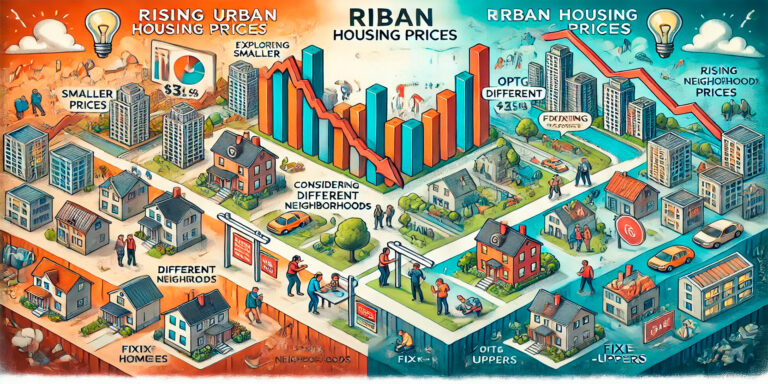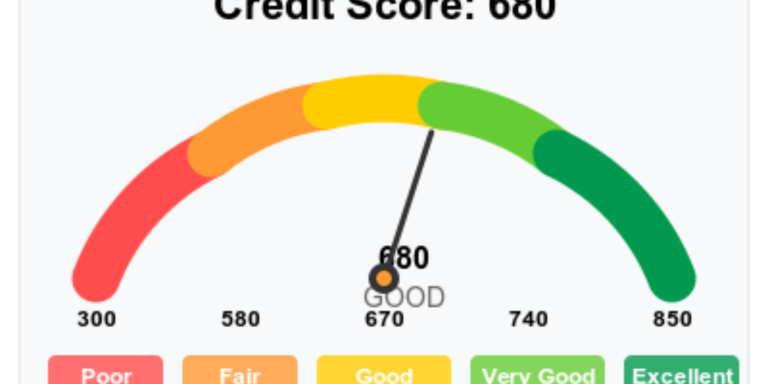Urban areas are known for their high rental demand, often leading to a fiercely competitive housing market. With limited availability and high prices, securing a rental property in a bustling city can be challenging. Whether you’re a newcomer or a seasoned renter, understanding the dynamics of urban rental markets and employing the right strategies can improve your chances of finding the right property. In this article, we’ll explore actionable tips for navigating competitive urban rental markets, helping you stand out from other prospective renters and secure a place you can call home.
Understanding the Dynamics of Urban Rental Markets
Rental markets in major cities are characterized by high demand and limited supply. Many people are drawn to urban areas for job opportunities, access to amenities, and cultural attractions, all of which drive up demand for housing. At the same time, space in cities is limited, and new developments often struggle to keep pace with the number of renters seeking properties. This imbalance leads to higher rents and greater competition among potential tenants.
High Demand for Limited Properties
In cities like New York, San Francisco, or London, rental vacancies are filled quickly, often within days of being listed. Landlords in these markets typically receive multiple applications for a single unit, making it essential to act fast. It’s common to see bidding wars for rentals, where renters offer above the asking price or agree to pay several months of rent upfront to secure a lease. Understanding that time is of the essence in these markets will prepare you to move quickly when the right opportunity arises.
Price Sensitivity in Urban Markets
Urban rental markets are particularly sensitive to price fluctuations. A small increase in rent can significantly impact affordability for renters, especially in cities where the cost of living is already high. In competitive markets, landlords have the advantage of being able to set higher rental prices due to strong demand. This makes it crucial for prospective tenants to understand their budget and be realistic about what they can afford in these high-demand areas.
Preparing Yourself Financially and Logistically
Before entering a competitive rental market, you need to be fully prepared financially and logistically. This preparation goes beyond simply having the first month’s rent and security deposit ready. You’ll need to present yourself as an ideal tenant, ready to move quickly once you find the right property.
Get Your Finances in Order
One of the most important steps in securing a rental in a competitive market is to have your financial documents ready. Landlords typically require proof of income, a credit check, and rental history references before approving an application. Ensure that your credit score is in good shape and that you have recent pay stubs or bank statements that prove you can afford the rent. Additionally, having cash on hand to cover the security deposit, the first month’s rent, and possibly the last month’s rent upfront can give you an edge.
Have a Rental Application Package Ready
When competition is high, having a rental application package ready can make all the difference. This package should include:
- Proof of income (e.g., pay stubs or tax returns)
- A letter of employment or a contract if you’re starting a new job
- References from previous landlords
- A copy of your credit report (if the landlord asks for it upfront)
- Photo ID
By preparing this information in advance, you can act quickly when you find a property that interests you, and your application will stand out as organized and reliable.

Being Proactive and Flexible During Your Search
In a competitive market, waiting for the perfect listing to come to you might leave you empty-handed. Being proactive in your search and staying flexible can increase your chances of securing a rental property.
Start Your Search Early
Starting your rental search well before you need to move is essential in a competitive market. Begin looking at least 60 to 90 days before your intended move-in date, especially in popular urban areas where properties get leased quickly. This gives you time to see a variety of properties and familiarize yourself with market conditions before committing to a lease.
Expand Your Search Area
If you’re finding it difficult to secure a rental in a specific neighborhood, consider expanding your search to surrounding areas. Many urban markets have adjacent neighborhoods that offer similar amenities at lower prices and with less competition. You might find more availability or better deals by looking just outside the most popular districts.
Be Ready to Move Fast
Once you find a rental property that meets your criteria, be ready to act fast. In competitive markets, hesitation can mean losing out on an opportunity. Have your rental application package ready to submit immediately, and be prepared to schedule a viewing as soon as possible. It’s not uncommon for desirable units to be taken within hours of being listed, so responding quickly is key.
Stand Out as a Desirable Tenant
With so much competition for urban rentals, making yourself stand out as a reliable and desirable tenant can improve your chances of securing a lease. Landlords are looking for tenants who are financially stable, responsible, and likely to take care of their property.
Build a Positive Rental History
A strong rental history can give you an edge in a competitive market. If you’ve rented before, make sure to get references from past landlords that speak to your reliability, cleanliness, and on-time payment history. Positive feedback from previous landlords can give prospective landlords the confidence to choose you over other applicants.
Offer Incentives to Landlords
If you really want to secure a property in a highly competitive area, consider offering incentives to the landlord. You could offer to pay a higher security deposit or multiple months’ rent upfront. In some cases, tenants offer to sign a longer lease (e.g., 18 months instead of 12) to give landlords more stability. These offers can make you a more attractive tenant compared to others who are only offering the standard lease terms.

Utilize Technology to Gain an Advantage
In today’s fast-paced rental market, using technology can give you a significant advantage. Many renters rely on online listings, but there are additional tools and strategies you can use to stay ahead of the competition.
Set Up Alerts and Notifications
Most rental websites and apps allow you to set up alerts for new listings that match your criteria. Use these alerts to stay informed about new properties the moment they hit the market. This ensures you can act quickly, scheduling viewings and submitting applications before other potential renters even see the listing.
Work with a Real Estate Agent
In some competitive urban markets, working with a real estate agent can help you gain access to listings that aren’t widely advertised. Agents often have inside knowledge of upcoming vacancies or relationships with landlords, giving you an advantage over renters who rely solely on online listings. While there may be fees involved in using an agent, the benefit of securing the right property may be worth the cost in a competitive market.
Negotiating in a Competitive Rental Market
Negotiation is often limited in tight rental markets, but that doesn’t mean you should accept any terms without careful consideration. Being strategic in your negotiations can help you get the best deal while still securing a desirable property.
Understand the Market Value
Before entering negotiations, do your research to understand the market value of rental properties in your desired area. If you know that a unit is priced above average, you may have more leverage to negotiate the rent down, especially if the property has been on the market for a while. However, in areas with extremely high demand, landlords may not be open to lowering rent, so focus on other negotiable aspects like the length of the lease or included utilities.
Negotiate Lease Terms
If negotiating rent isn’t an option, consider negotiating other lease terms. For example, you could ask for a shorter lease term if you’re unsure about committing to a full year, or request certain amenities like parking, storage, or pet allowances to be included. Small adjustments to lease terms can make a big difference in your overall rental experience, even if the rent remains non-negotiable.
Navigating the competitive rental market in urban areas requires preparation, flexibility, and a proactive approach. By understanding the market dynamics, getting your financial documents in order, and acting quickly when opportunities arise, you’ll increase your chances of securing the right rental property in even the most competitive city markets.






